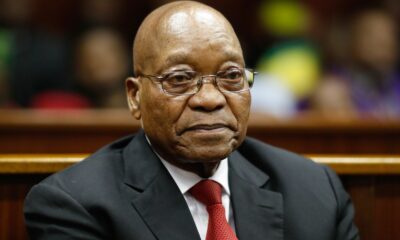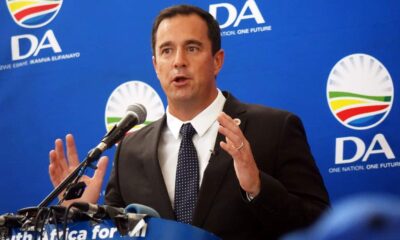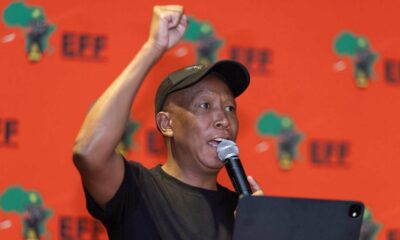Business
South Africa Budget Cuts 2025: Busi Mavuso Urges Spending Reductions Over Tax Hikes

With the third and likely final attempt at a national budget due on 21 May 2025, South Africa is at a financial crossroads. According to Busi Mavuso, CEO of Business Leadership South Africa (BLSA), the country must now confront a sobering truth: it can no longer afford to spend beyond its means.
“There are only two choices,” Mavuso says, “raise taxes or cut spending—and the country has made it clear that tax hikes are politically off the table.”
This stark warning comes after two failed budget attempts earlier this year, both rejected in part because they proposed raising VAT to cover ever-expanding government expenditures. The upcoming third budget, notably, will exclude any VAT increase, but parties are now scrambling for alternative revenue sources.
Why Tax Hikes Are Off the Table
While some political voices suggest introducing wealth taxes or increasing corporate tax rates, Mavuso argues these are not viable solutions.
“South Africa’s corporate and personal tax rates are already among the highest globally. Pushing them further will only drive economic activity—and jobs—out of the country,” she said.
Even Treasury’s internal research supports this, indicating that aggressive taxation could reduce revenue, not increase it, by discouraging investment and triggering capital flight.
Another widely floated idea has been to raise SARS’ tax collection targets, especially after the agency outperformed by nearly R9 billion last year. However, Mavuso calls this an unrealistic and risky move.
“You can’t base a national budget on hopes and outliers,” she said. “It’s easy to budget for spending, but much harder to budget for earning.”
Cutting Spending: The Only Sustainable Path
Mavuso is clear: South Africa must begin cutting government expenditure.
Yet this solution is politically unpopular. Cutting back means cancelling programs, downsizing entities, or reducing support—none of which wins votes.
“No politician wants to be the one to say something can no longer be done by the government,” she explained.
South Africa’s spending has ballooned in recent years, largely due to the creation of new state programs and entities. But not all of these deliver value, and many are riddled with inefficiencies.
Mavuso is calling for a “mature and honest assessment” of which government functions truly benefit the public—and the “political bravery” to trim those that do not.
Budgeting in a Shifting Global Context
Complicating matters further is the deteriorating global economic climate. When the original budget was tabled in February, economists hoped for 2%+ growth. But following a global trade war and local political shifts, South Africa’s growth forecast has now plummeted to just 1%.
“We must accept the world as it is, not as we wish it to be,” Mavuso stressed. “Our planning must reflect that.”
Hard Choices, Urgent Action
As South Africa’s government of national unity prepares to present its final budget for the year, one thing is clear: the era of “business as usual” is over.
Without new tax hikes and amid stagnating growth, cutting spending is no longer a choice—it’s a necessity. And as Mavuso puts it, now is the time for South Africa’s leaders to show the courage to act in the country’s long-term interest.
{Source: BusinessTech}
Follow Joburg ETC on Facebook, Twitter , TikTok and Instagram
For more News in Johannesburg, visit joburgetc.com



























